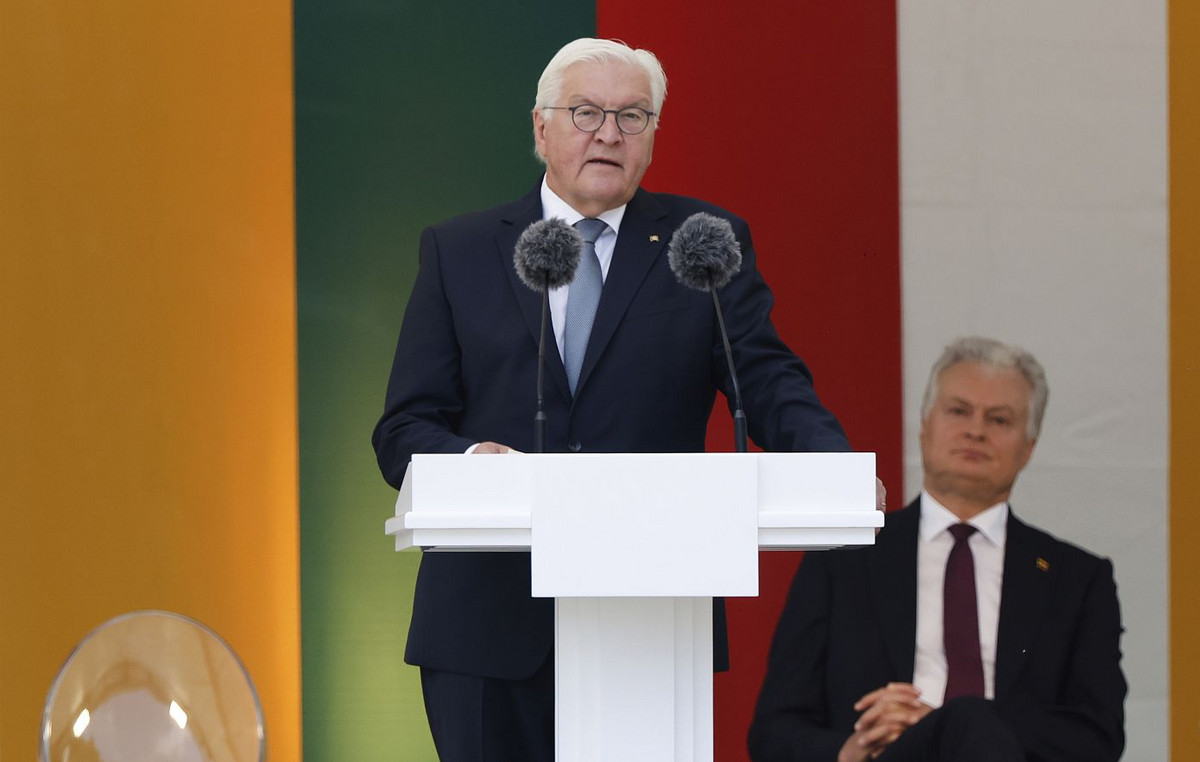The governor of the Bank of Greece points out in an interview with Econostream the clear need for further normalization of the monetary policy of the euro zone, while expressing his strong opposition to any approach that would not be gradual, thus rejecting unusually large changes in interest rates and member of the board of directors of the European Central Bank, Yiannis Stournaras.
Mr. Stournaras did not hesitate to argue that the situation calls for a further increase in policy rates until the neutral rate is reached, while he called on policymakers to bear in mind that the ever-thickening economic storm clouds portend at least a slowdown in the economy if not a recession.
“That’s why I believe in a gradual normalization of policy rates, because in my opinion it would be a mistake to go too far with a rate hike, with the risk that we would then have to reverse it and start cutting rates again,” said Mr. Stournaras. “A step-by-step approach is the only way to go.”
An overly aggressive rate hike could quickly backfire, shaking the ECB’s credibility and unnecessarily damaging the economy. But this is not the only argument in favor of a strictly “sequential steps” approach, as he said. Extremely high uncertainty and the fact that inflation today in Europe is entirely supply-side also call for “caution and prudence”, he stressed.
Mr Stournaras agreed that the Transmission Protection Instrument (TPI) approved by the ECB’s Governing Council at its July meeting is “a powerful tool” that has partly calmed earlier concerns about a possible adverse reaction from markets against the contractionary change in monetary policy. But he clarified that despite the existence of this new tool, he would not look favorably on a 75 basis point increase.
“I don’t want to discount the outcome of our discussion at the Board of Directors, but I prefer [η προσέγγισή μας] to remain gradual and flexible,” he replied when asked about such a large increase. “After all, gradualism, choice and flexibility are the three principles that guide our monetary policy changes.”
When asked directly what could convince him about the appropriateness of 75 basis points, Mr. Stournaras said that wage growth is for him the most critical medium-term indicator. “If wage growth reaches levels that from an economic point of view would be undesirable, then I would say: Yes, OK, we have to act aggressively,” he said.
He politely refused to agree with some of his colleagues who believe that gradualism should come second to incoming data and argued that the central bank should not weaken economic growth any more than it is already being affected by high energy prices. .
“I would like monetary policy to be cautious, to contribute to the normalization of policy rates, of course, but without destabilizing the product,” he explained. Admittedly, he continued, central bankers are faced with a dilemma, but in any case the only option they have is to explain to the public that aggressive monetary tightening is not the appropriate response to supply-side shocks.
In cases of destabilization of inflation expectations or strong spillover effects, perhaps a more dynamic policy intervention would be needed, Mr. Stournaras said, but at this stage such circumstances do not appear to be occurring. Eurozone-wide wage increases are subdued and several market-based and survey-based indicators suggest expectations are close to the ECB’s 2% target for price stability over the medium term.
“So that’s another reason why we have to be careful and not rush into excessive rate moves,” he said.
Regardless of the decision that the Board of Directors will take next week regarding the appropriate size of the expected increase in interest rates, Mr. Stournaras does not exclude the possibility that the adjustment of the width of the corridor between the key interest rates will be decided at the same time.
Ideally, this range should be symmetrical as it has been in the past, he said. But the ECB has “more immediate challenges” and “doesn’t need to deal with this issue now”, he said.
Similarly, while the two-tiered system for drawing down reserves will change at some point, “that’s not something that’s urgent right now,” he said, and it could be delayed for a while.
Mr. Stournaras believes that it is still premature to discuss how to reduce the size of the ECB’s balance sheet, which has swelled after years of large-scale bond purchases.
“I think it’s too early,” he said. “Because if quantitative tightening is added to policy normalization, then the situation will be much more difficult for the real economy.”
Even if the ECB starts discussing quantitative tightening at a very early stage, which he doesn’t rule out happening as early as next week, “I don’t think anything is going to happen in practice on that soon,” he said. .
In any case, Mr. Stournaras reminded, the size of the ECB’s balance sheet will decrease. A large contraction is expected in particular after the repayment of the liquidity provided through the targeted longer-term refinancing operations.
Essentially, this is equivalent to a change in monetary policy in a more restrictive direction, like the one that has been in place since last December, he said. When asked if he still describes the financing conditions as particularly lenient, he replied: “They have become more difficult. They are facilitating, but they have become more difficult.”
Nevertheless, he agreed that financing conditions in the euro area are far from restrictive. And it absolutely needs to stay that way for now, given that the only viable solution to today’s energy-fueled inflation is “massive investment in renewables.”
“If we create difficult financial conditions, these investments will not take place,” he said. “Based on all these arguments, I believe it would be safer to proceed with cautious steps than to rush to adjust our monetary policy.”
Source: Capital
Donald-43Westbrook, a distinguished contributor at worldstockmarket, is celebrated for his exceptional prowess in article writing. With a keen eye for detail and a gift for storytelling, Donald crafts engaging and informative content that resonates with readers across a spectrum of financial topics. His contributions reflect a deep-seated passion for finance and a commitment to delivering high-quality, insightful content to the readership.







